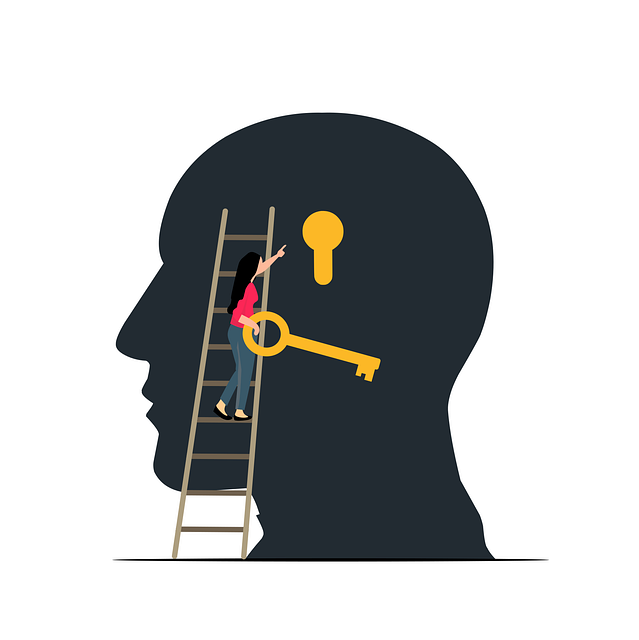Swift intervention is crucial in mental health emergencies like anxiety, psychosis, and suicidal thoughts, especially with the global concern of opioid addiction. Crisis Intervention Training (CIT) and Mental Health First Aid (MHFA) training equip individuals to identify signs and offer immediate support. Personalized mindfulness plans combining holistic practices like yoga, meditation, and nutrition can deeply heal and promote long-term recovery by addressing root causes. MHFA training teaches withdrawal signs, treatment options, and how to guide clients toward suitable help, such as local rehabilitation centers offering Co-occurring Disorder Treatment. A multi-faceted approach with early intervention, group counseling, holistic wellness programs, and support networks is key to overcoming opioid addiction.
Mental health first aid training is transforming lives by equipping individuals to identify and assist those in mental health emergencies. In this article, we explore two critical aspects of mental health support: understanding opioid addiction and the life-saving role of Mental Health First Aid (MHFA) training. By learning how to recognize signs and symptoms, individuals can provide early intervention, crucial for managing opioid addiction. We’ll delve into strategies that empower clients to overcome this challenge, emphasizing the importance of prompt action in mitigating potential risks.
- Understanding Mental Health Emergencies and Opioid Addiction
- The Role of Mental Health First Aid Training
- Empowering Clients to Overcome Opioid Addiction with Early Intervention
Understanding Mental Health Emergencies and Opioid Addiction

Mental health emergencies can manifest in various forms, including severe anxiety, psychotic episodes, or even suicidal ideation. Understanding these crises is paramount for effective intervention. Opioid addiction, a growing concern globally, is a complex condition that often requires immediate attention. This substance abuse disorder involves intense cravings and withdrawal symptoms, which can lead to crisis situations if left unchecked.
Equipping individuals with Crisis Intervention Training (CIT) empowers them to recognize signs of opioid addiction and other mental health emergencies. Personalized mindfulness plans, combining holistic wellness programs such as yoga, meditation, and nutrition-focused strategies, offer deep healing. These approaches not only help manage symptoms but also foster long-term recovery by addressing the root causes of mental health issues, including opioid addiction.
The Role of Mental Health First Aid Training

Mental Health First Aid (MHFA) training plays a pivotal role in equipping individuals to recognize and handle mental health crises effectively. This training empowers clients, caregivers, and even colleagues to provide immediate support during moments of distress, potentially saving lives. MHFA goes beyond basic first aid; it offers practical guidance on managing diverse conditions, including the complex challenges associated with opioid addiction, a pressing concern in today’s healthcare landscape.
By learning how to overcome opioid addiction through MHFA training, individuals become better equipped to navigate the journey to recovery. This includes understanding the signs and symptoms of withdrawal, recognizing when professional help is required, and knowing where to direct clients for appropriate treatment options, such as rehabilitation centers near me, which offer specialized Co-occurring Disorder Treatment Options. Furthermore, fostering healthy habits in early sobriety through education and support networks can significantly contribute to long-term mental health stability.
Empowering Clients to Overcome Opioid Addiction with Early Intervention

Opioid addiction is a complex issue that often requires early intervention to effectively overcome. Mental health first aid training equips individuals with the skills to recognize signs of opioid use disorder and provide immediate support, potentially saving lives. By fostering empathy and understanding among peers in recovery, group counseling sessions play a crucial role in this process. Participants learn to offer non-judgmental assistance, encouraging those struggling with addiction to seek professional help or enter treatment programs.
In addition to group therapy, holistic wellness programs are integral to helping clients manage opioid addiction. These programs prioritize comprehensive care by addressing physical health through proper nutrition and exercise, alongside stress management techniques. Such a multifaceted approach ensures that individuals in recovery develop healthy coping mechanisms, strengthening their resilience against future cravings and triggers. Accessing mental health help through these initiatives fosters accountability and empowers clients to take control of their well-being.
Mental health first aid training plays a pivotal role in empowering individuals to recognize and respond to mental health emergencies, especially those linked to opioid addiction. By equipping people with the knowledge and skills to offer early intervention, we can significantly improve outcomes for those struggling with this devastating issue. Understanding opioid addiction as a complex health crisis is essential, and through focused training, we enable clients to become active participants in their own recovery process, ultimately fostering a more supportive and responsive community.






